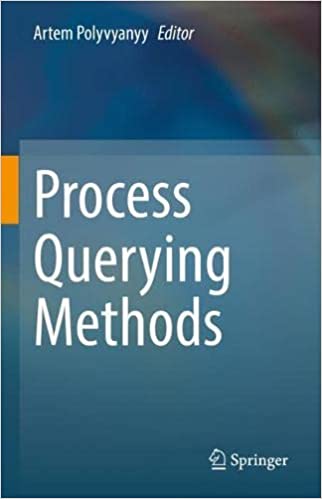 ISBN-13: 978-3030928742 ISBN-10: 3030928748 |
From the Back CoverThis book presents a framework for developing as well as a comprehensive collection of state-of-the-art process querying methods. Process querying combines concepts from Big Data and Process Modeling and Analysis with Business Process Intelligence and Process Analytics to study techniques for retrieving and manipulating models of real-world and envisioned processes to organize and extract process-related information for subsequent systematic use. The book comprises sixteen contributed chapters distributed over four parts and two auxiliary chapters. The auxiliary chapters by the editor provide an introduction to the area of process querying and a summary of the presented methods, techniques, and applications for process querying. The introductory chapter also examines a process querying framework. The contributed chapters present various process querying methods, including discussions on how they instantiate the framework components, thus supporting the comparison of the methods. The four parts are due to the distinctive features of the methods they include. The first three are devoted to querying event logs generated by IT-systems that support business processes at organizations, querying process designs captured in process models, and methods that address querying both event logs and process models. The methods in these three parts usually define a language for specifying process queries. The fourth part discusses methods that operate over inputs other than event logs and process models, e.g., streams of process events, or do not develop dedicated languages for specifying queries, e.g., methods for assessing process model similarity. This book is mainly intended for researchers. All the chapters in this book are contributed by active researchers in the research disciplines of business process management, process mining, and process querying. They describe state-of-the-art methods for process querying, discuss use cases of process querying, and suggest directions for future work for advancing the field. Yet, also other groups like business or data scientists and other professionals, lecturers, graduate students, and tool vendors will find relevant information for their distinctive needs. Chapter “Celonis PQL: A Query Language for Process Mining“ is available open access under a Creative Commons Attribution 4.0 International License via link.springer.com. |
About the EditorArtem Polyvyanyy is an Associate Professor at the School of Computing and Information Systems, Faculty of Engineering and Information Technology, at the University of Melbourne (Australia), where he leads the Process Science and Technology research group. He is a Vice-Chair of the Steering Committee of the IEEE Task Force on Process Mining. His research and teaching interests include Computing Systems, Distributed Systems, Process Mining, Process Querying, Artificial Intelligence, and Algorithms. Product detailsPublisher: Springer; 1st ed. 2022 edition (March 13, 2022) |
|
